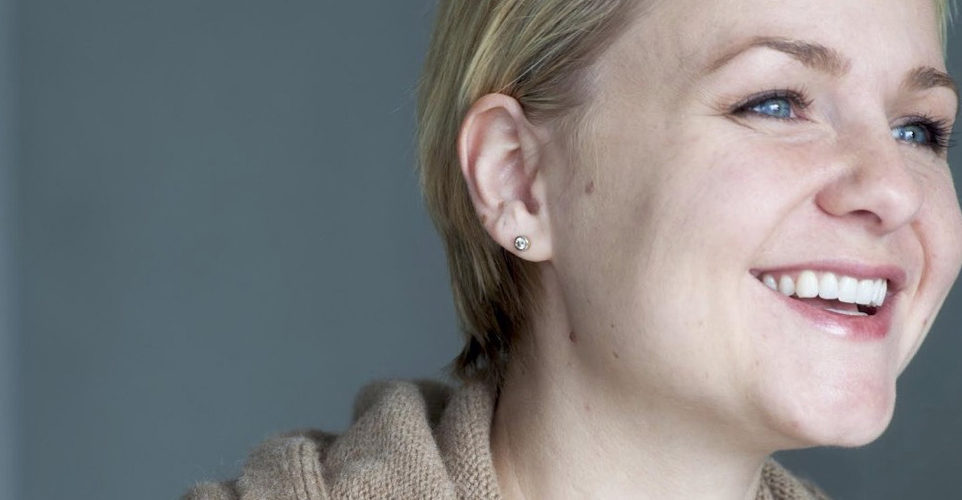
Rufi Thorpe (Class of 2006, Eugene Lang College) received her MFA from the University of Virginia in 2009, and is the author of two novels and numerous essays. Her second novel, Dear Fang, With Love, published by Knopf, came out this past May, 2016. Her first novel, The Girls from Corona del Mar, also published by Knopf, came out in 2014.
Q. Congratulations on the publication of your second novel! Was the process of writing it different in any significant way having the success of your first published novel behind you?
I was actually terrified of how publishing might change my writing headspace, so I wrote the whole first draft of Dear Fang in the year leading up to publication of The Girls from Corona del Mar! For me the process was very much the same. I find the act of writing a novel to be intensely pleasurable and rather separate from the process of publication.
Q. How important were your experiences at Lang in shaping you as a writer? Did you arrive thinking of yourself as a writer or did the certainty that you would pursue that course in life come later?
Lang was pivotal in making me a writer, though I spent most of my four years desperately trying to figure out how I could be anything else. I wanted to become an academic because it seemed like a good day job for a writer. You’d get to learn about interesting things, have many hours to contemplate things in your head. What was most important that Lang gave me was the unique combination of freedom and access. I could study what interested me, when it interested me, and I had access to truly world class professors and resources. It allowed me to sort of skimperskamp through western civilizations, cobbling together a more comprehensive understanding than I might have gleaned from a series of survey courses.
Q. You’ve written essays and given interviews that very generously share your struggles as a writer who’s also a mother with two children, and, elsewhere, your reflections on the relationship between writing and experience. In those terms, how has your idea of a “writer’s life” evolved both in terms of the success you’ve achieved and the ongoing challenges you face as a writer?
Well, when I was a teenager, at Lang (I started there when I was 16) the term: a writer’s life, meant to me: a male life that involves adventures and hard drinking. Now I think of it more as a hermit’s life. Learning to write is very confusing because there is no authority, there is no one path. You have to forge your own path, you have to make up your own rules, there is no ultimate approbation and no ultimate criticism either. It is extremely lonely and it is extremely fun. But I think the most glorious thing about it is that truly anyone is invited to do the work, and anyone can. Being a storyteller is a very basic human gift. It’s not like being an olympic athlete where only 1 in 50,000 people has the build to even begin to compete. Being a storyteller is bread and butter, is ordinary, and yet stories are also inherently magical and socially important.
Q. In terms of your process, how, or when, does an idea become “the idea” that becomes the seed of a new project?
Basically when I can’t stop thinking about it. When it keeps tugging at me and I get more and more excited the more I think about it.
Q. In an interview, you refer to having written as many as three novels before The Girls of Corona del Mar that you describe as immature. It may seem academic, but how important is perseverance for a writer? When was it clear to you that you’d found your mature voice?
To be honest, it’s still not all that clear to me that I have found a voice, or that I have matured, or that I have accomplished anything at all. I’m 32, and that feels both young and old to me. I feel very frustrated, actually, by my limitations as a writer on an almost daily basis, and I can only hope and pray that I will continue to grow as an artist and as a person.
Perseverance is really the name of the entire game. That’s why it helps if you like writing novels, because then you are willing to be humble and say, Well, I’ve already failed at this multiple times, but let’s do it again! And you have to do it with some joy and some lightness in your heart, or else it’s just too much, it’s just too hard. You have to be willing to fall down and willing to get back up. Because the ego trip of “am I good at this? Is my work good?” I think that’s, in the end, a real trap. Honestly, what could you possibly do about it, if God came down and told you, “You’re actually only second rate.” I mean, would you stop? What a gift it is to be second rate! I’ll take being second rate all my life if I still get to write every day. What an impossible, blissful luxury, to be a second rate novelist!